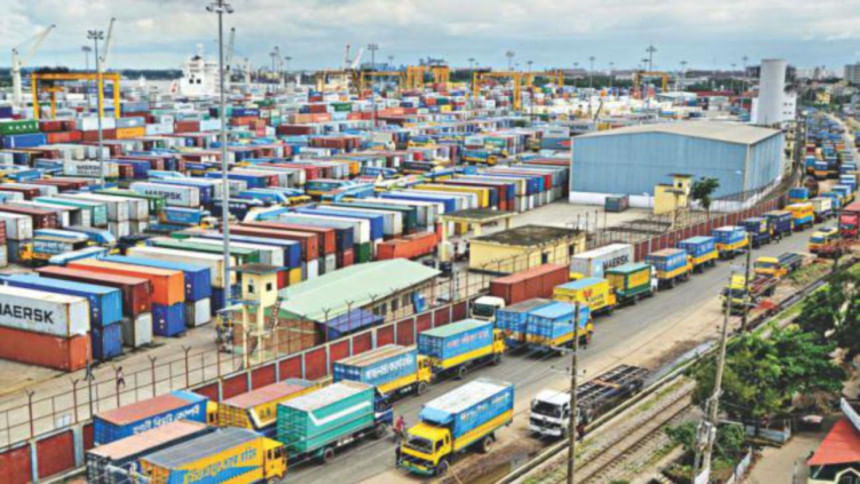
News
October 27, 2025
Why a logistics commission, not an authority, aligns with our realities
In a vast logistics system, hierarchy without coordination may struggle to deliver results.
**Why a logistics commission, not an authority, aligns with our realities**
The intricate web of logistics, responsible for moving goods and services across the nation and beyond, is a complex beast. It involves everything from trucking and shipping to warehousing and supply chain management. While the desire for a streamlined and efficient system is universal, the best way to achieve it is a topic of ongoing debate. Recently, the discussion has centered on the optimal structure for overseeing this vital sector, and the consensus appears to be leaning towards a coordinating commission rather than a top-down, centralized authority.
The core argument against a powerful logistics authority boils down to the inherent nature of the system itself: it’s vast, decentralized, and comprised of numerous independent players. Simply establishing a hierarchical structure, without fostering true collaboration and information sharing, risks creating bottlenecks and inefficiencies instead of resolving them. A commission, on the other hand, is designed to bring together these diverse stakeholders – government agencies, private companies, industry experts – to identify challenges, develop solutions, and promote best practices.
The key difference lies in the approach. A logistics authority, with its inherent power to dictate and enforce, could potentially stifle innovation and create bureaucratic hurdles. Imagine a single entity trying to micromanage the routes of thousands of trucking companies or dictate the warehousing strategies of countless businesses. The result could be a rigid system ill-equipped to adapt to the ever-changing demands of the global marketplace.
A commission, however, operates through consensus-building and collaboration. It can act as a central hub for information, facilitating communication between different sectors and promoting the adoption of standardized practices. By bringing together experts from various fields, a commission can identify systemic issues, such as infrastructure bottlenecks or regulatory inconsistencies, and develop targeted solutions that address the root causes of these problems.
Furthermore, a commission can play a crucial role in promoting innovation and technological advancements within the logistics sector. By fostering partnerships between research institutions, technology companies, and industry players, a commission can help to accelerate the development and adoption of new technologies that can improve efficiency, reduce costs, and enhance sustainability.
In conclusion, while the allure of a powerful logistics authority might seem appealing on the surface, a coordinating commission offers a more pragmatic and effective approach to managing the complexities of the modern logistics landscape. By prioritizing collaboration, information sharing, and consensus-building, a commission can pave the way for a more efficient, resilient, and innovative logistics system that benefits everyone. The focus should be on
The intricate web of logistics, responsible for moving goods and services across the nation and beyond, is a complex beast. It involves everything from trucking and shipping to warehousing and supply chain management. While the desire for a streamlined and efficient system is universal, the best way to achieve it is a topic of ongoing debate. Recently, the discussion has centered on the optimal structure for overseeing this vital sector, and the consensus appears to be leaning towards a coordinating commission rather than a top-down, centralized authority.
The core argument against a powerful logistics authority boils down to the inherent nature of the system itself: it’s vast, decentralized, and comprised of numerous independent players. Simply establishing a hierarchical structure, without fostering true collaboration and information sharing, risks creating bottlenecks and inefficiencies instead of resolving them. A commission, on the other hand, is designed to bring together these diverse stakeholders – government agencies, private companies, industry experts – to identify challenges, develop solutions, and promote best practices.
The key difference lies in the approach. A logistics authority, with its inherent power to dictate and enforce, could potentially stifle innovation and create bureaucratic hurdles. Imagine a single entity trying to micromanage the routes of thousands of trucking companies or dictate the warehousing strategies of countless businesses. The result could be a rigid system ill-equipped to adapt to the ever-changing demands of the global marketplace.
A commission, however, operates through consensus-building and collaboration. It can act as a central hub for information, facilitating communication between different sectors and promoting the adoption of standardized practices. By bringing together experts from various fields, a commission can identify systemic issues, such as infrastructure bottlenecks or regulatory inconsistencies, and develop targeted solutions that address the root causes of these problems.
Furthermore, a commission can play a crucial role in promoting innovation and technological advancements within the logistics sector. By fostering partnerships between research institutions, technology companies, and industry players, a commission can help to accelerate the development and adoption of new technologies that can improve efficiency, reduce costs, and enhance sustainability.
In conclusion, while the allure of a powerful logistics authority might seem appealing on the surface, a coordinating commission offers a more pragmatic and effective approach to managing the complexities of the modern logistics landscape. By prioritizing collaboration, information sharing, and consensus-building, a commission can pave the way for a more efficient, resilient, and innovative logistics system that benefits everyone. The focus should be on
Category:
Politics